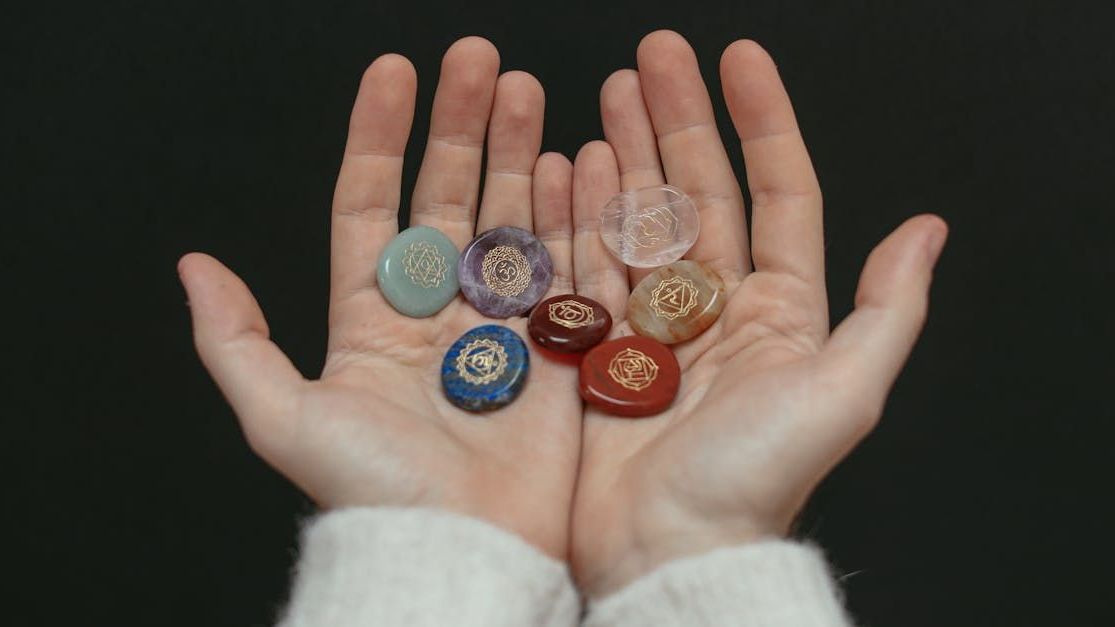



In this day and age, it’s easy to find ourselves overwhelmed by commitments, digital distractions, and impulsive decisions. It may even feel like striving for balance and intentional living can feel like a distant goal. If you can relate to this, you’re most certainly not alone. From our modern technological advances, to the socially conditioned expectation of always being plugged in, or to respond back to emails and text messages immediately, there are many reasons why we may be giving away too much of our energy, too often.
The idea of moderating our energy expenditure might seem like a new concept to many of us, however it has been around quite long before life was the way it is today. The ancient yogic principle of Brahmacharya is a practice that teaches us how to channel our energy more mindfully, and cultivate a more harmonious life. In this post, I’ll share my personal journey with Brahmacharya, as well as practical ways you can incorporate moderation into your life, both on and off the yoga mat.
Understanding Brahmacharya
Brahmacharya is the fourth Yama, or yogic principle of practicing moderation and conscious use of your energy in various aspects of life to promote balance. The term itself can be translated to "behavior that leads to Brahman (the divine)”. While traditionally associated with celibacy, in a broader and modern context, it encompasses the idea of directing our energy toward positive and meaningful endeavors.
Practicing Brahmacharya is about making mindful choices in how we use our time, energy, and resources. It's about avoiding extremes and finding a middle path that supports our well-being and growth.
My Personal Journey with Brahmacharya
It’s crazy to think that it wasn't too long ago, I would often find myself energetically exhausted and overcommitted to different social functions, meetings, projects, phone calls, etc. I felt digitally overloaded and constantly glued to my phone. I would make hasty and impulsive purchases and life decisions that I later regretted, while regularly overindulging in alcohol, food, and other unhealthy activities. That eventually led to a pattern where I would end up in relationships where I didn’t feel valued, respected, or truly happy.
In a way, these behaviors were unconscious; they left me feeling drained and unfulfilled, longing for a sense of balance and contentment. This is where Brahmacharya became a transformative practice in my life.
Incorporating Brahmacharya into my life wasn't an overnight transformation. It began with small, intentional changes that gradually brought more harmony and fulfillment. For instance, I started setting clear boundaries on my commitments and digital consumption. This meant saying —no— to additional projects that didn't align with my core values and dedicating specific times of the day to disconnect from screens.
I also became more mindful of my consumption patterns. I practiced pausing before making purchases or indulging in food and drink, asking myself if these actions truly served my well-being. This shift helped me avoid regret and foster a deeper sense of contentment with what I had.
In my relationships, I started prioritizing connections that uplifted and respected me, ensuring that my energy was reciprocated and valued. Practicing Brahmacharya has helped me prioritize my peace, and become much more selective in deciding who and what I spend my energy on, resulting in more meaningful and fulfilling interactions in my life. Here are some big ways you can start incorporating more discernment, self-respect, and mindful self-compassion, simply by practicing moderation.
Practicing Moderation
On the Mat
- Align your body in yoga poses with a responsive mindfulness, avoiding overextension and excess force. Practicing with awareness and transitioning a little slower will help prevent injury while promoting sustainable progress.
- Practice pranayama (breathwork) with a focus on controlling your breath to ensure equilibrium and ease in each breath cycle.
- Set realistic intentions for your practice, emphasizing steady progress and balanced effort. This approach cultivates patience, perseverance, and self-compassion while helping you avoid burnout.
- Listen to your body’s signals and adapt your practice to its needs on any given day. Whether it's modifying a pose or taking a break, honoring your body's messages is crucial for a safe and sustainable practice.
- Integrate mindful rest in your practice with poses that promote recovery and avoid pushing through fatigue. Restorative poses and a substantial savasana are essential for maintaining overall health and balance.
Off the Mat
- Set boundaries on screen time, avoid excessive social media consumption, and focus on being present in face-to-face interactions. Being present enhances the quality of our relationships and mental clarity.
- Avoid overcommitment and make time for self-care, relaxation, and meaningful connections. Balanced commitments prevent stress and promote overall well-being.
- Practice moderation in consumption (food, material possessions, or entertainment). Take what you need and avoid indulging in excess. Mindful consumption leads to greater satisfaction and less clutter, both physically and mentally.
- Speak and write with intention, avoiding gossip or unnecessary conflicts, and cultivate positive, respectful interactions. Intentional communication fosters healthier relationships and a more positive environment for everyone.
- Take time to contemplate your goals, values, and actions, ensuring that your choices align with your deeper intentions, and contribute positively to your overall well-being. Self-reflection helps us stay true to our path and make meaningful progress.
Final Thoughts
As someone who has struggled with saying “no” most of her life, discovering Brahmacharya felt like a revelation. The idea of safeguarding my energy, time, and heart was liberating, and I knew that with consistent practice, it would become second nature and transform my life. Embracing Brahmacharya has brought more intention and mindfulness into my daily routine, allowing me to create a more harmonious and fulfilling life both on and off the mat. By consciously choosing how we spend our energy, we not only enhance our well-being, but also become more present and engaged in the relationships, as well as moments that truly matter. Remember, even small, mindful changes can lead to profound and lasting transformations.




